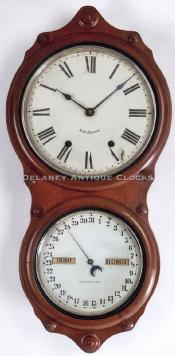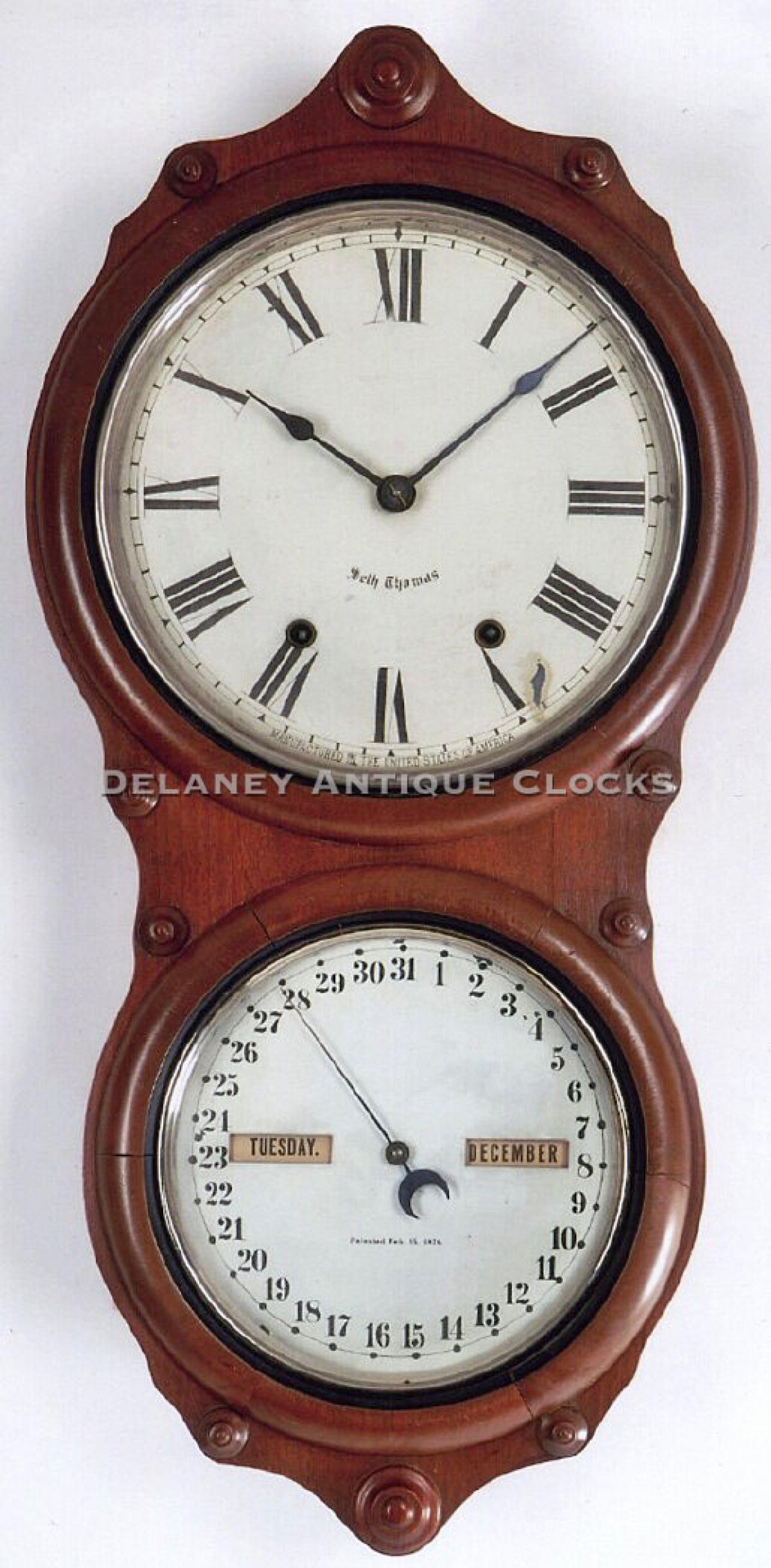Seth Thomas Office Calendar No. 7 wall clock in mahogany. 214056.
This very useful office calendar clock is in a mahogany veneered case. The recent finish enhances the rich mahogany color. Both dials are original to this clock and are painted on tin. The upper time dial measures ten inches in diameter. This dial displays the hours and minutes. It is also signed with the “SRTH THOMAS” clock company name. This painted dial has a few very minor areas of paint loss. The second dial displays the calendar. It is a little smaller, measuring eight inches in diameter. The “February 15, 1876” patent date is printed here. This dial displays the day of the week, the day of the month, and the calendar day. This calendar mechanism is perpetual and is operator friendly. The day and month roles are original to this clock and in very good condition. The spring-driven movement is constructed in brass and is of good quality. It is a time-and-strike example (count wheel) designed to run for eight days on a full wind and strike each hour on a bell mounted inside the case. The front plate bears the Clockmaker’s die-stamp. This movement also features Geneva Stop winding mechanisms on each winding arbor. The Maker’s labels can be found inside the case. This includes the directions for operation, which are pasted inside the door. The calendar instructions are pasted on the backboard.
This clock measures approximately twenty-six and one-half inches long and was made circa 1912 (See date on the back of the case). It is in excellent condition.
Interestingly, this clock may have been used in the Central Bank of Soerabaya. Soerabaya is located in Indonesia. A stencil on the backboard gives us a clue. It is also dated 1912. Today, It is easy to imagine this very practical clock in one’s office or even in one’s kitchen.
Inventory number 214056.
Seth Thomas was born in Wolcott, Connecticut, in 1785. He was apprenticed as a carpenter and joiner and worked building houses and barns. He started in the clock business in 1807, working for clockmaker Eli Terry. Thomas formed a clock-making partnership in Plymouth, Connecticut, with Eli Terry and Silas Hoadley as Terry, Thomas & Hoadley. In 1810, he bought Terry's clock business, making tall clocks with wooden movements. Seth chose to sell his shares in the partnership in 1812, moving in 1813 to Plymouth Hollow, Connecticut, where he set up a factory to make metal-movement clocks. In 1817, he added shelf and mantel clocks. By the mid-1840s, He successfully transitioned to brass movements and expanded his operations by building a brass rolling mill and a cotton factory. In 1853, He incorporated the business but continued to be the majority shareholder. This clock business expanded until it became one of the "BIG Seven" in Connecticut. Their product line had offerings that competed at every price point, from kitchen clocks to precision regulators. Seth Thomas died in 1859. The community of Plymouth Hollow so revered him that they changed the name on July 6, 1875, to Thomaston in his honor. After his death, his son, Aaron, took over the company's leadership. Aaron is credited with increasing the business by adding a number of new case styles and improving production methods. The company went out of business in the 1980s.



